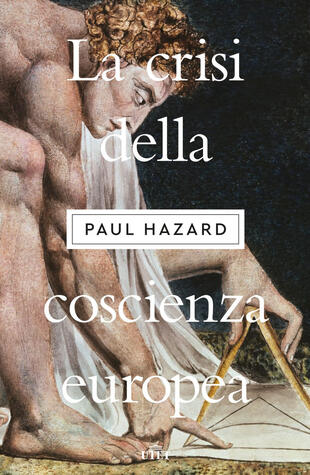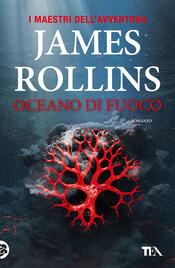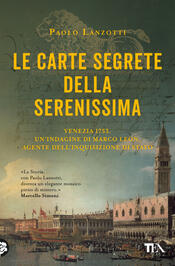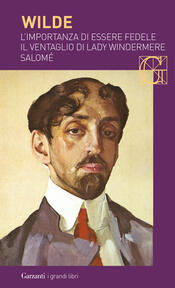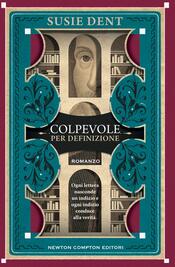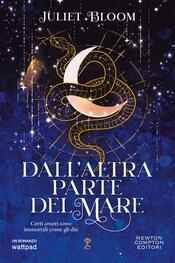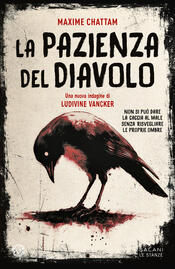Sinossi
Alla fine del Seicento, in un'Europa ancora percorsa dalle tensioni della Controriforma, si intravedono soffusi i bagliori dell'imminente Secolo dei lumi: di ritorno dalle Americhe e dall'Oriente, i primi viaggiatori dischiudono nuovi orizzonti per la geografia e l'immaginazione; interpretando la Bibbia e le Scritture come documenti storici, Baruch Spinoza e Richard Simon insinuano il dubbio sull'autenticità di credenze tradizionali e "verità rivelate"; e mentre l'empirista John Locke indaga l'intelletto umano a partire dai suoi limiti, con il calcolo infinitesimale Gottfried W. Leibniz e Isaac Newton sembrano invece determinati a portare quei confini sempre più lontano. Sono gli albori di una rivoluzione culturale che, guidata da un rinnovato spirito di geometria, spianerà la strada verso l'Illuminismo e la moderna civiltà di diritto. Analizzando il periodo compreso tra il 1680 e il 1715, Hazard coglie il momento di trasformazione collettiva che avrebbe definito l'identità culturale dell'Europa odierna, un'identità fluida e non scevra di contraddizioni, frutto del turbamento dinanzi all'alterità, all'eresia e all'audacia intellettuale di una generazione di liberi pensatori, filologi, scienziati, artisti, philosophes, disseminati fra i centri e le periferie del continente. Affresco vivido di un'epoca complessa e prismatica - pubblicato nel 1935, anno oscurato dai nazionalismi e dai fanatismi ideologici -, "La crisi della coscienza europea" resta tuttora un esempio insuperato di erudizione storiografica, ampiezza di sguardo e potenza affabulatoria. Con e-book scaricabile fino al 30 giugno 2020.
- ISBN:
- Casa Editrice:
- Pagine: 368
- Data di uscita: 01-10-2019
Recensioni
Majestic work of intellectual history - large in scope, erudite, brilliantly written. We can almost feel the joy of victory of the modern ideas while reading. Saying this, the book should be supplemented with some social history of Europe during the period. Otherwise it rather feels like the ideas i Leggi tutto
لطالما كان هذا الكتاب مصاحبا لي على الدوام ، عثرت عليه مترجما ترجمة رصينة ورائعة للدكتور يوسف عاصي صادرة عن المنظمة العربية للترجمة . الكتاب يحكى تسلسلاً تاريخيا لتطور الفكر الأوروبي فى الفترة التى يمكن أن يطلق عليها جمعت كل المتناقضات داخل أوروبا من الناحية الفكرية . أعظم العقول التى مهدت للثورة الفر Leggi tutto
This book looks at the ground work that was necessary for Western Europeans, principally British, French and Germans to shake the neo-classical thought and make the West ready for the Enlightenment. To me, there is just something magical about reading a book from the 1930s which explains the beginni Leggi tutto
Summarizing this work would be like summarizing a classic novel: you might capture the highlights, but will not convey the rich details and textures of the telling. In brief, one might say that according to Hazard, the early modern period was characterized by a new and welcoming attitude toward chan Leggi tutto
Very well done, but also utterly baffling, because Hazard's style is *so* rhetorically over-the-top that it should be unreadable. What was in the water in France in the first half of the twentieth century? And yet I made my way through the book easily enough, on the beach, even. Hazard covers a huge Leggi tutto
ان الروح التى سادت اوروبا فى القرن السابع عشر هى امتداد للروح الثورية التى نضجت طوال القرن السابق خلال النهضة والاصلاح او الانشقاق الدينى الذى انهكت حروبه القارة وهرمت بسببها امبراطوريات عظمى رغم حداثة عمرها كهولندا واسبانيا ولكنها عملت اخيرا على بلورة امبراطوريات اخرى كانت فيما مضى مجرد ممالك مقسمة Leggi tutto
A book which one not only reads but on which one must reflect. The author's theory is that much of the thought that led to the decline of monarchies, the revolutions and the rise of democracy came from the philosophical debates and writings during this period of European history. The author does an
Citazioni
Al momento non ci sono citazioni, inserisci tu la prima!
